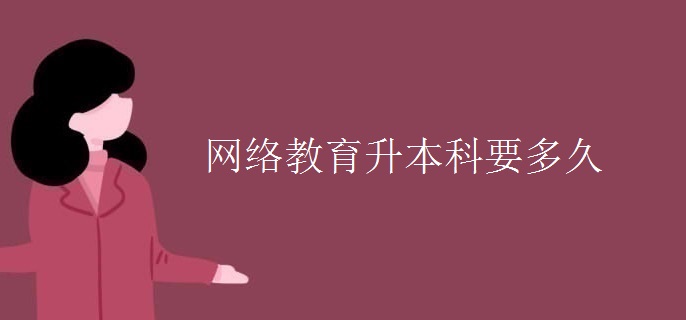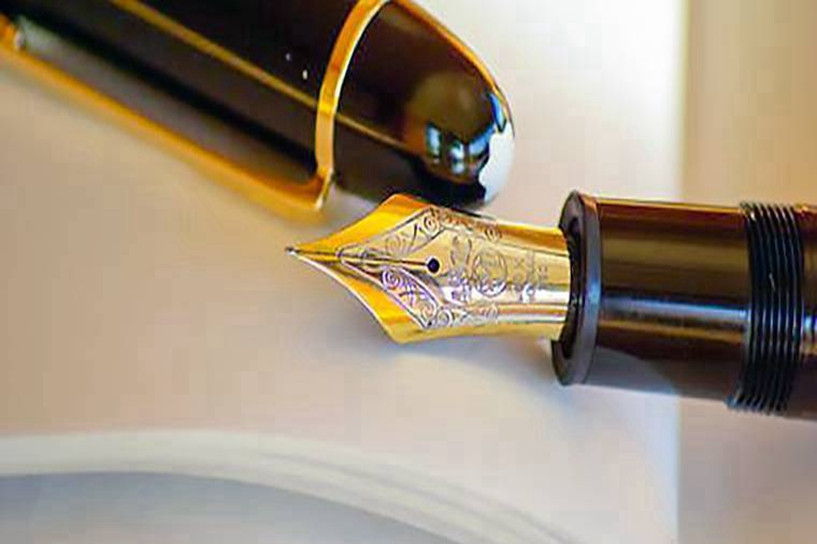第一部分:英语知识运用(共10小题;每小题2分,满分20分)
此部分共有10个未完成的对话,针对每个对话中未完成的部分有4个选项,请你从A、B、C、D四个选项中,选出可以填入空白处的最佳选项并,用铅笔将答题卡上的相应字母涂黑。示例〔A〕〔B〕〔C〕〔D〕
1. — Hello, could I speak to Don, please?
— ______________
A. Who are you? B. Who’s there?
C. Who could I help? D. Who’s speaking?
2. — May I help you, madam?
— ______________
A. Sorry, I have no idea. B. Yes, I know what to say.
C. You’d better give me a hand. D. Yes, I’d like 2 kilos of oranges.
3. — What about going for a walk?
— ______________
A. It’s good for you. B. That’s all right.
C. So, do I. D. Why not? A good idea.
4. — I think the Internet is very helpful.
— ___________
A. Yes, so do I. B. It’s a very good idea.
C. Neither do I. D. I’d rather go surfing on it.
5. — Will you go on a picnic with us tomorrow?
— ___________
A. Yes, but I’ll have English classes.
B. Sorry, I have an appointment with Dr. Brown.
C. I’m afraid I have no idea.
D. I won’t. It’s kind of you.
6. — Excuse me, when is the next flight from London due to arrive?
— ______________
A. In half an hour. B. An hour before.
C. Until the next one. D. Before another one.
7. — I’m glad you like it. Please drop in any time you like.
— ____________
A. Yes, I will. B. I’m afraid I won’t be free.
C. Is it all right? D. That’s great.
8. — I believe we’ve met somewhere before.
— No, ____________.
A. it isn’t the same B. it can’t be true
C. I don’t think so D. I’d rather not
9. — You’ve given us a wonderful Chinese dinner, Mrs. Wang.
— ____________
A. Oh, I don’t think I cooked very well. B. I’m glad you enjoyed it.
C. Come again when you are free. D. It’s not necessary for you to say so.
10. — I’m sorry. Bob’s not in his office.
— _____________
A. Would you like to leave a message? B. Are you sure for that?
C. Can you take a message for me? D. Can you phone me?
第二部分:阅读理解 (共20小题;每小题2分,满分40分)
此部分共有4篇短文,每篇短文后有5个问题,每个问题后有4个选项,请你从A、B、C、D四个选项中,选出可以填入空白处的最佳选项,并用铅笔将答题卡上的相应字母涂黑。示例〔A〕〔B〕〔C〕〔D〕
Passage 1
The United States covers a large part of the North American continent. Its neighbors are Canada to the north and Mexico to the south. Although the United States is a big country, it is not the largest in the world. In 2000, its population was over 222 million.
When this land first became a nation, after winning its independence from England, it had thirteen states. Each of the states was represented (代表) on the American flag by a star. All these states were in the eastern part of the continent. As the nation grew toward the west, new states were added and new stars appeared on the flag. For a long time, there were 48 stars. In 1959, however, two more stars were added to the flag, representing the new states of Alaska and Hawaii.
Indians were the first people of the land which is now the United States. There are still many thousands of Indians now living in all parts of the country. Sometimes it is said that the Indians are “the only real Americans”. Most Americans come from all over the world. Those who came first in greatest numbers to make their homes on the eastern coast of North America were mostly from England. It is for that reason that the language of the United States is English and that its culture and customs are more like those of England than those of any other country in the world.
11. Which of the following is TRUE?
A. America is the largest country in the world.
B. The United States lies next to Canada and Mexico.
C. America covers most part of the North American continent.
D. Mexico is to the north of Canada.
12. After winning its independence, the United States _______.
A. had nothing to do with England
B. made India part of its land
C. mainly developed westward
D. took over parts of Canada and Mexico
13. The United States didn’t have _______ states until________.
A. thirteen; 1959 B. fifty; 1959
C. fifty; this land first became a nation D. fifty; 1964
14. Why is English the language of America?
A. English is the native language of the Indians.
B. Most Americans come from all over the world.
C. Most of the people who first settled in America were from England.
D. Canada is America’s nearest neighbor.
15. The best title for the passage is “______________”.
A. The States of America
B. The Language of America
C. The United States of America
D. The Culture and Customs of America
Passage 2
A friend of mine named Paul received an expensive car from his brother as a Christmas present. On Christmas Eve when Paul came out of his office, a street urchin (顽童) was walking around the shining car. “Is this your car, Paul?” he asked.
Paul answered, “Yes, my brother gave it to me for Christmas.” The boy was surprised. “You mean your brother gave it to you and it didn’t cost you anything? Boy, I wish .…” He hesitated.
Of course Paul knew what he was going to wish for. He was going to wish he had a brother like that. But what the boy said surprised Paul greatly.
“I wish,” the boy went on, “that I could be a brother like that.” Paul looked at the boy in surprise, then he said again, “Would you like to take a ride in my car?”
“Oh yes, I’d love that.”
After a short ride, the boy turned and with his eyes shining, said, “Paul, would you mind driving in front of my house?”
Paul smiled a little. He thought he knew what the boy wanted. He wanted to show his neighbours that he could ride home in a big car. But Paul was wrong again. “Will you stop where those two steps are?” the boy asked.
He ran up to the steps. Then in a short while Paul heard him coming back, but he was not coming fast. He was carrying his little crippled (残疾) brother. He sat him down on the step and pointed to the car.
“There she is, Buddy, just like I told you upstairs. His brother gave it to him for Christmas and it didn’t cost him a cent. And some day I’m going to give you one just like it … then you can see for yourself all the nice things in the Christmas windows that I’ve been trying to tell you about.”
Paul got out and lifted the boy to the front seat of his car. The shining-eyed older brother climbed in beside him and the three of them began an unforgettable holiday ride.
16. The street urchin was very surprised when ________.
A. Paul received an expensive car
B. Paul told him about the car
C. he saw the shining car
D. he was walking around the car
17. From the story we can see the urchin ________.
A. wished to give his brother a car
B. wanted Paul’s brother to give him a car
C. wished he could have a brother like Paul’s
D. wished Paul could be a brother like that
18. The urchin asked Paul to stop his car in front of his house ________.
A. to show his neighbours the big car
B. to show he had a rich friend
C. to let his brother ride in the car
D. to tell his brother about his wish
19. We can infer(推断)from the story that ________.
A. Paul couldn’t understand the urchin
B. the urchin had a deep love for his brother
C. the urchin wished to have a rich brother
D. the urchin’s wish came true in the end
20. Paul gave the brothers a ride probably because _________.
A. he was free during the Christmas holiday
B. he thought he should help all crippled people
C. he was moved by the older brother’s wish
D. he wanted to take them to buy Christmas gifts
Passage 3
Like most people, I was brought up to look upon life as a process of getting. It was not until in my late thirties that I made this important discovery: giving-away makes life so much more exciting. You need not worry if you lack money. This is how I experimented with giving-away. If an idea for improving the window display of a neighborhood store flashes to me, I step in and make the suggestion to the storekeeper. One discovery I made about giving-away is that it is almost impossible to give away anything in this world without getting something back, though the return often comes in an unexpected form. One Sunday morning the local post office delivered an important special delivery letter to my home, though it was addressed to me at my office. I wrote the postmaster a note of appreciation. More than a year later I needed a post-office box for a new business I was starting. I was told at the window that there were no boxes left, and that my name would have to go on a long waiting list. As I was about to leave, the postmaster appeared in the doorway. He had overheard (无意中听到) our conversation. “Wasn’t it you that wrote us that letter a year ago about delivering a special delivery to your home?” I said yes. “Well, you certainly are going to have a box in this post office if we have to make one for you. You don’t know what a letter like that means to us. We usually get nothing but complaints.”
21. From the passage, we understand that ____________.
A. the author did not understand the importance of giving until he was in late thirties
B. the author was like most people who were mostly receivers rather than givers
C. the author received the same education as most people during his childhood
D. the author liked most people as they looked upon life as a process of getting
22. According to the author,______________.
A. giving means you will have less money
B. the excitement of giving can bring you money
C. you don’t have to be rich in order to give
D. when you give away money, you will be rich
23. The author would make the suggestion to the storekeeper ______________.
A. in writing B. in person
C. in the window display D. about the neighborhood
24. When the author needed a post-office box, _______________.
A. he had to put his name on a waiting list
B. he wrote the postmaster a note of appreciation
C. many people had applied for post-office boxes before him
D. he asked the postmaster to make one for him
25. In reply to the postmaster’s question, the author said _____________.
A. it was the special delivery
B. it was the post-office box
C. it was the note of appreciation he wrote
D. it was he who wrote him a letter a year ago
Passage 4
The resources of the library can be helpful even when we are doing something very informal, such as trying to devise a better way to measure attitudes toward music or looking for a better way to teach mathematics. The library can be equally helpful when we are doing something very formal, such as writing a dissertation (学位论文) or preparing an article for publication in a professional journal. In either case, our goal should be to use the library as a useful tool to help us understand and solve our problem.
The following sections of this chapter will describe specific resources available in many libraries. In some cases you may already be aware of a resource and may use it frequently and successfully. In other cases you may be completely unfamiliar with a resource. Your goal should be to become aware of what is available and to know how to use each of these resources to help you solve the problem they are designed to solve.
When educators have a piece of information that they want to share with their colleagues, they often make this information available in professional journals or at professional meetings. It would often be useful to have access to such information, and this chapter will describe the special services that enable us to locate such information.
26. The library resources can be helpful when we ______________.
A. want to find a better way to measure attitudes toward music
B. are preparing a paper for a professional journal
C. are writing a dissertation
D. All of the above
27. Readers’ familiarity of with different resources ____________.
A. is more or less the same B. varies slightly
C. differs greatly D. should not be different
28. The author believes that _______________.
A. library resources should be used frequently and completely
B. library resources cannot be made good use of if they are not available to us
C. one is supposed to be aware of the library resources that are usually not available
D. one is supposed to have good knowledge and make good use of library resources
29. When educators wish to share some information with their colleagues, they often __________.
A. publish it in a professional journal
B. organize professional meetings
C. get access to it in the library
D. make use of some library services
30. The chapter in question mainly ______________.
A. deals with the ways of dissertation writing
B. presents information on publishing papers in professional journals
C. introduces some library services
D. describes some professional meetings
第三部分:词汇和结构 (共25小题;每小题1分,满分25分)
第一节:此小节共有15个未完成的句子,针对每个句子中未完成的部分有4个选项,请你从A、B、C、D四个选项中,选出可以填入空白处的最佳选项,并用铅笔将答题卡上的相应字母涂黑。示例〔A〕〔B〕〔C〕〔D〕
31. I tried to put ____ a telephone call to him, but his line was always busy.
A. over B. into C. away D. through
32. The guests said that they wouldn’t mind _________ a little light music.
A. to have B. having C. have D. that they have
33. The event took place during _________.
A. First World War B. the First World War
C. World War the one D. the World War One
34. Where can I _________ dollars for pounds?
A. get B. have C. change D. exchange
35. On _________ in London, Smith went to see the House of Parliament.
A. getting B. coming C. reaching D. arriving
36. Neither Bill nor his parents _________ at home.
A. is B. has C. are D. was
37. If you don’t want to get wet, then you had better _________ this umbrella with you.
A. take B. to take C. taken D. for taking
38. The planets are so far away that it is impossible _____ in miles.
A. that we measure it B. to us to measure them
C. for us to measure them D. measuring them
39. I would like to see a suit _________ the one in the window.
A. than B. from C. as D. like
40. She will always _________ in mind what her parents told her when she left home.
A. place B. keep C. control D. restrict
41. We shall ask for samples _________ and then we can make our decision.
A. to be sent B. being sent C. to send D. to have been sent
42. I must tell you _________ a letter from you.
A. I was pleased to receive B. I was pleased to receiving
C. I pleased to receive D. I was pleased receiving
43. I hadn’t seen him for years, but I _________ his voice on the telephone.
A. realized B. discovered C. recognized D. heard
44. The girl is not happy at the new school. She has _________ friends there.
A. few B. a few C. even few D. quite a few
45. A computer _________ think for itself, it must be told what to do.
A. can’t B. couldn’t C. may not D. might not
第二节:此小节的短文中共有10个空白处,针对每个空白处有4个选项,请你从A、B、C、D四个选项中,选出可以填入空白处的最佳选项,并用铅笔将答题卡上的相应字母涂黑。示例〔A〕〔B〕〔C〕〔D〕
Another useful method for improving your reading is the ability to reflect on what is being presented. Readers 46 the material that they have read not simply to understand it, 47 to interpret, analyze, and critique this information. Readers use several different methods to help them reflect such as careful note-taking, synthesis (综合), and analysis.
Careful note-taking on your reading material 48 while you read. Pausing periodically to 49 about important claims or ideas, 50 details, or questions about unclear concepts is a valuable practice. The act of note-taking will help you to reflect about the content of the document, and the notes you keep will 51 an archive that you can refer to in the future.
Synthesis is the ability to take what are 52 seeming irrelevant points and put them together into a meaningful, new whole. Synthesis may occur during your reading, or it may take place after you have read a document in its entirety.
Analysis moves synthesis one step 53 , encouraging a reader to carefully examine thoroughly the points 54 , and how they are synthesized. After readers analyze a passage or a whole text, they 55 regarding the document, either generally agreeing or disagreeing with its message.
46. A. study B. reflect on C. consider D. think
47. A. and B. but also C. moreover D. yet
48. A. must take B. may start C. have to begin D. should occur
49. A. make note B. write note C. take notes D. keep note
50. A. relevant B. connected C. associated D. linked
51. A. act as B. serve as C. consider as D. regard as
52. A. firstly B. to begin with C first hand D. at first
53. A. in advance B. farther C. further D. forwardly
54. A. to be made B. being made C. having made D. to make
55. A. take a position B. insist on C. consider D. hold the view
第四部分:写作 (满分15分)
要求你在30分钟内, 根据下面所给的题目用英语写出一篇不少于80词的短文。
About English Study
试点高校网络教育部分公共基础课全国统一考试
大学英语B参考答案与评分标准
来源:全国高校网络教育考试委员会办公室
2006年5月
Part Ⅰ Use of English (20 points, 2 points each)
1-5 DDDAB 6-10 AACBC
Part Ⅱ Reading Comprehension (40 points, 2 points each)
11-15 BCBCC 16-20 BADBC 21-25 ACBCD 26-30 DCDAC
Part Ⅲ Vocabulary and Structure (25 points, 1 point each)
Section A
31-35 DBBDD 36- 40 CACDB 41- 45 AACAA
Section B
46-50 BBDCA 51-55 BDCBA
Part Ⅳ Writing (15 points)
(略)
作文评分标准
《大学英语》B的作文考试评卷原则是在整体评阅的基础上给出印象分,此印象分以奖励给分,不是按错扣分。
评分按档次进行,即1-3分,4-6分,7-9分,10-12分,13-15分五个档次。各个档次的具体描述如下:
13-15分:扣题,语言流畅,用词丰富,篇章结构感强,语法正确,只有个别小错。
10-12分:扣题,语言通顺,用词较丰富,段与段之间有较好的过渡,语法基本正确,有些语病;
7-9分: 基本扣题,语言基本正确,用词有一定变化,文中错误较多,有个别为严重错误;
4-6分: 语言基本功差,文章中中国式英语表达居多,用词贫乏,语法错误相当多,有多处严重错误。
1-3分: 语言支离破碎,绝大部分句子无法理解,语言错误很多。
 相关文章
相关文章 








 热门攻略
热门攻略